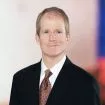The wireless industry has revolutionized the way we connect, from facilitating teleworking, distance learning, and telemedicine to allowing the American public to interact virtually in almost all other aspects of their daily lives. Leading policymakers – federal regulators and legislators – are making it a top priority to ensure that the wireless industry has the tools and resources it needs to keep pace with this evolving landscape. This blog provides monthly updates on actions by federal regulatory bodies responsible for communications policy and Congressional efforts to support wireless connectivity. And this month we highlight FCC Chairwoman Rosenworcel's renewed call to Congress to restore the FCC's authority to conduct spectrum auctions.
Regulatory Actions and Initiatives
Spectrum Auction Authority
FCC Chair Marks 30th Anniversary of Spectrum Auction Authority. FCC Chairwoman Rosenworcel released a statement on August 10, 2023 – the 30th anniversary of when the FCC was first granted Congressional authority to conduct spectrum auctions and five months after that authority expired for the first time in the agency's history – renewing her call to Congress to restore the FCC's auction authority. Noting that FCC spectrum auctions have fueled American growth for three decades, she pointed out that "[t]he agency has held 100 auctions . . . rais[ing] more than $233 billion for the United States Treasury" and that these auctions "are a big reason why the United States leads the world in wireless innovation." She called spectrum auctions "an essential part of our economic and national security," adding that "[t]he current lapse in spectrum auction authority is unprecedented and it puts this leadership at risk." Chairwoman Rosenworcel stressed that "[w]ith the World Radio Conference now only months away, it is vital that this authority is reauthorized as soon as possible."
Wireless Spectrum
FCC Denies Extension Request for 12.7 GHz Band Reply Comments and Announces Certification Window for Incumbent Licensees in the Band. The FCC's Wireless Telecommunications Bureau ("WTB") released an Order denying a request by several satellite operators for an extension of the deadline to file reply comments on the FCC's proposal to repurpose the 12.7 GHz band for mobile broadband and other expanded use. Accordingly, reply comments continue to be due on September 8, 2023. The WTB found that the satellite operators have neither identified specific technical issues that require additional time for analysis nor explained with particularity why such analysis cannot be completed by the current reply comment deadline. The WTB noted that parties may submit additional analyses after the reply comment deadline in accordance with the FCC's ex parte rules.
In addition, the WTB, in coordination with the Media Bureau, released a Public Notice that provides instructions for incumbent 12.7 GHz band Broadcast Auxiliary Services ("BAS") and Cable Television Relay Services ("CARS") licensees to file certifications regarding existing information in the FCC's Universal Licensing System and Cable Operations and Licensing System databases, respectively, and establishes a window for filing these certifications. The FCC previously determined in the 12.7 GHz Order that non-exempt fixed and mobile BAS and CARS licensees in the 12.7 GHz band must certify the accuracy of the information reflected on their licenses, including whether the facilities are operating as authorized, to improve the data available to the public and the Commission to make informed decisions about the proposals discussed above. A licensee that filed an application, on or after January 1, 2021, for a new or modified BAS or CARS license in the 12.7 GHz band is exempt from the certification requirement as to that specific license. Non-exempt BAS and CARS licensees may file their required certifications now through November 29, 2023.
FCC Seeks Input on Spectrum Use in Tribal and Native Hawaiian Communities. On August 4, 2023, the WTB and Office of Native Affairs and Policy released a Public Notice seeking comment on Tribal Nation and Native Hawaiian access to spectrum, including the extent to which Tribal Nations and the Native Hawaiian Community have been able to successfully access spectrum through secondary market transactions. It also notes that the FCC's new Enhanced Competition Incentive Program is expected to be launched later this year, and the Commission plans to monitor the effectiveness of the program for Tribal Nations. Accordingly, the Public Notice seeks comment on the status quo now to develop a baseline for future comparison. The Public Notice also seeks comment on access to spectrum through other frameworks like the Citizens Broadband Radio Service ("CBRS") band, unlicensed spectrum in White Spaces, and the 5 GHz band. The Public Notice notes that the information collected will be used as the Commission develops and implements new and existing policy initiatives designed to increase connectivity in Tribal communities. Comments are due November 30, 2023.
FCC Provides Further Relief to the NFL for Communications Using 3.5 GHz Spectrum. On August 16, 2023, the WTB issued an Order granting the NFL's request for a second extension of its 3.5 GHz band CBRS communications waiver through the 2023-2024 NFL season for its coach-to-coach communications system. Although the NFL requested a two-year extension of the waiver, the WTB found that a conditional waiver limited to one season is sufficient to allow the NFL to complete its due diligence on a rules-compliant technical solution for its system and is appropriate due to the evolving CBRS landscape. The WTB requires the NFL to comply with the same conditions discussed in its 2021 Waiver Order and 2022 Waiver Extension Order and also includes a modified version of the conditions proposed by NCTA.
NTIA and FCC Announce the Use of a New System for Coordinating Federal Use of the 3.5 GHz Band. In response to a letter from NTIA notifying the FCC that it is replacing the current manual scheduling portal system used to protect certain federal facilities from CBRS operations in the 3.5 GHz band with the automated Telecommunications Advanced Research and Dynamic Spectrum Sharing System ("TARDyS3"), the WTB and the Office of Engineering and Technology ("OET") released a Public Notice (1) directing Spectrum Access System ("SAS") administrators to use the new TARDyS3 portal in place of the manual scheduling portal currently used to activate portal-activated dynamic protection areas, and (2) noting the addition of the U.S. Naval Air Station at Patuxent River, Maryland as a protected facility operated by the Department of Defense ("DoD"). The WTB and OET also released an Order waiving Section 96.63(n)(1) of the FCC's rules, which prohibits SAS connectivity with a federal database, for SAS administrators. The waiver will facilitate SAS administrators' use of the TARDyS3 portal, since it will be managed by DoD and will include information on DoD operations.
FCC Certifies Clearing for an Additional C-band Satellite Operator. On August 9, 2023, the WTB released an Order validating the Phase II Certification filed by SES Americom, Inc. ("SES") for clearing the C-band for commercial wireless services. The WTB found that the Phase II Certification satisfied the FCC's required criteria and explained that no challenges were filed to SES's Certification. The WTB included the same conditions as it did for other satellite operators who filed Phase II Certifications and had their certifications validated. Specifically, if after the disbursement of SES's Accelerated Relocation Payment the WTB finds that SES should have transitioned additional earth stations, antennas, or feeds, SES will be required to complete all Phase II transition work relating to such earth stations, antennas, or feeds "in a prompt and effective manner."
Waiver Granted to Permit New Technologies to Support Automotive Safety in the 5.9 GHz Band. On August 16, 2023, the Public Safety and Homeland Security Bureau, OET, and WTB (collectively, the "Bureaus") released a letter granting 17 individual waiver requests submitted by the various state, local, and municipal transportation authorities and two equipment manufacturers – Sonamore, Inc. d/b/a P3Mobility and Connex2X, LLC – (collectively, the "Applicants") to deploy Cellular Vehicle-to-Everything ("C-V2X") technologies in the 5.9 GHz band. The Bureaus found that granting the Applicants' requests serves the public interest by encouraging widespread deployment of intelligent transportation systems operations using C-V2X technology. The Bureaus imposed the same technical requirements and restrictions on the Applicants that were previously adopted in a Joint Waiver Order, as modified by the Joint Waiver Modification Order. Licensees must also register each roadside unit ("RSU") in ULS before operating the RSU, and RSUs at locations subject to NTIA coordination may not begin operation until the licensee receives NTIA approval. Finally, the Bureaus conditioned the waiver on the requirement that each waiver recipient ensures that RSU and on-board unit operations and devices authorized will comply with the final rules or other guidance provided by the FCC in any timeframe determined by the FCC.
FCC Releases Notice of Inquiry on Non-Federal Spectrum Use. On August 4, 2023, the FCC released its Notice of Inquiry seeking comment on non-federal spectrum usage. As previously reported, the Notice of Inquiry seeks to explore avenues to advance the FCC's understanding of non-federal spectrum usage through new data sources, technologies, and methods such as artificial intelligence ("AI"). Comments are due October 3, 2023, and reply comments are due November 2, 2023.
Wireless Networks and Devices
NTIA Releases 5G Challenge Update. On August 29, 2023, NTIA provided an update on its 2023 5G challenge. Among other things, the update reports that JMA Wireless was added as a new contestant in June. Since joining the challenge, JMA Wireless' radio units ("RU") and central unit and distributed unit pair ("CU+DU") subsystem completed and passed Stage Two wrap-around emulation testing. NTIA also notes that it is currently closing out Stage Three testing, under which the CU+DU and RU contestants previously selected work together to establish end-to-end interoperability and ultimately create a 5G network. And Stage Four testing, under which two pairs from Stage Three work together to demonstrate mobility, is underway.
NTIA Announces Initial Awards from the Public Wireless Supply Chain Innovation Fund. On August 8, 2023, NTIA issued a Press Release announcing that it awarded nearly $5.5 million (of the $1.5 billion available) in the first round of grants from the Public Wireless Supply Chain Innovation Fund to support certain R&D and testing activities. Northeastern University was awarded more than $1.98 million for "[a]utomated and fine-grained energy-efficiency profiling of Open RAN systems." NYU was awarded $2 million to develop testing and evaluation procedures for open and interoperable solutions for next-generation (5G-Advanced and beyond) RAN components "with a focus on both shared and adversarial spectrum scenarios." And DeepSig Inc. – a developer of AI/machine-learning software – was awarded approximately $1.5 million to "improve the fidelity, speed, and repeatability of OpenRAN (ORAN) Air-Interface performance testing."
FCC Releases Notice of Proposed Rulemaking on New Cybersecurity Program. On August 10, 2023, the FCC released its Notice of Proposed Rulemaking seeking comment on a proposal to create a voluntary cybersecurity labeling program. As we previously reported, the new program would provide consumers with clear information, based on criteria developed by the National Institute of Standards and Technology, about the security of their Internet-enabled devices, commonly called "Internet of Things" or "smart" devices. Comments and reply comments are due September 25, 2023, and October 24, 2023, respectively.
In the Courts
Fifth Circuit Upholds FCC's 2018 Small Cell Order. On August 4, 2023, the U.S. Court of Appeals for the Fifth Circuit in Crown Castle Fiber, L.L.C. v. City of Pasadena, No. 22-20454, 2023 U.S. App. LEXIS 20364, joined the Third and Ninth Circuits in affirming the controlling application of the FCC's Small Cell Order clarification of the standard governing "effective prohibition" claims under Sections 253 and 332 of the Communications Act. Accelerating Wireline Broadband Deployment by Removing Barriers to Infrastructure Inv., Declaratory Ruling and Order, 33 FCC Rcd 7705 (2018). In the Small Cell Order, among other things, the FCC clarified that a local government's legal requirement effectively prohibits the provision of service when it "materially inhibits a provider's ability to engage in any of a variety of activities related to its provision of a covered service," including the critical deployments of small cells and the nation's drive to 5G.
At issue under Crown Castle's challenge were the City's "spacing" requirement, prohibiting small cells within 300 feet of another small cell or existing utility pole, and also a general undergrounding requirement that would have effectively prohibited small cells in the right of way. The Fifth Circuit held that the FCC's Small Cell Order standard controlled, and, as a result, the City of Pasadena's requirements are an effective prohibition by materially limiting Crown Castle's ability to provide telecommunications services. 2023 U.S. App. LEXIS 20364 at *18.
Of note, the Court also rejected the City's argument that Section 253(a) does not apply to densification efforts in the absence of an essentially complete absence of wireless coverage, and therefore, its guidelines could not be preempted. The Fifth Circuit strongly rejected the City's attempt to narrow the scope of the Small Cell Order and statute. The Court held that "the FCC has clearly stated that it considers the statute's requirement of an effective prohibition to include a material inhibition on the ability of a provider to deploy small wireless facilities, including cells," and further explained that the City's argument "flies in the face of common sense: Just because a provider can provide some limited level of service does not mean that it cannot improve that level, expand its capacity, or otherwise offer an upgraded or additional form of telecommunications service." Id. at *22-23.
The content of this article is intended to provide a general guide to the subject matter. Specialist advice should be sought about your specific circumstances.



